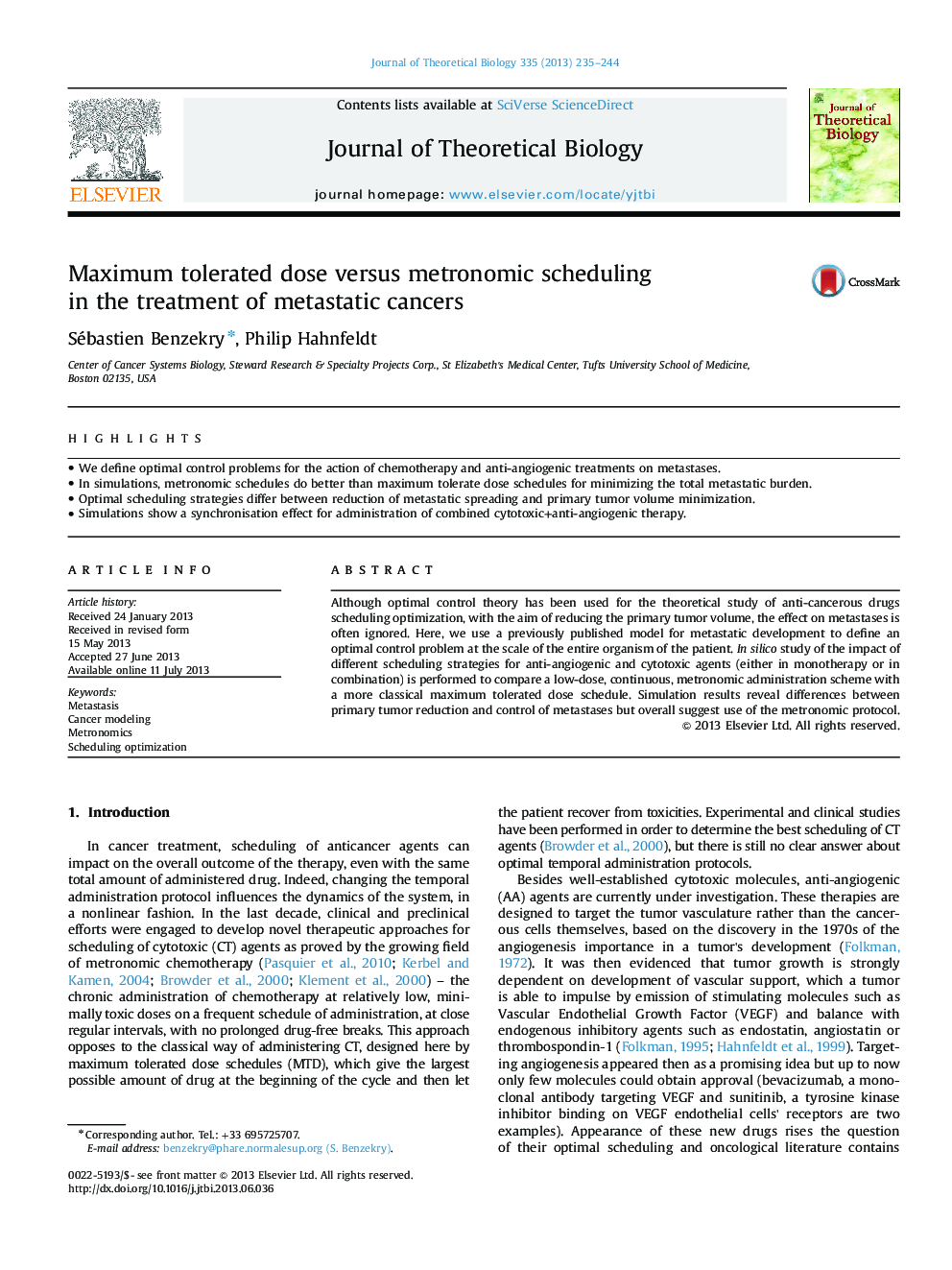| Article ID | Journal | Published Year | Pages | File Type |
|---|---|---|---|---|
| 6370707 | Journal of Theoretical Biology | 2013 | 10 Pages |
highlightsâ¢We define optimal control problems for the action of chemotherapy and anti-angiogenic treatments on metastases.â¢In simulations, metronomic schedules do better than maximum tolerate dose schedules for minimizing the total metastatic burden.â¢Optimal scheduling strategies differ between reduction of metastatic spreading and primary tumor volume minimization.â¢Simulations show a synchronisation effect for administration of combined cytotoxic+anti-angiogenic therapy.
Although optimal control theory has been used for the theoretical study of anti-cancerous drugs scheduling optimization, with the aim of reducing the primary tumor volume, the effect on metastases is often ignored. Here, we use a previously published model for metastatic development to define an optimal control problem at the scale of the entire organism of the patient. In silico study of the impact of different scheduling strategies for anti-angiogenic and cytotoxic agents (either in monotherapy or in combination) is performed to compare a low-dose, continuous, metronomic administration scheme with a more classical maximum tolerated dose schedule. Simulation results reveal differences between primary tumor reduction and control of metastases but overall suggest use of the metronomic protocol.
